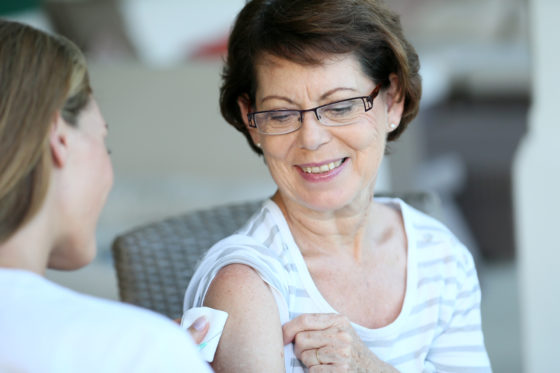How did the RIVM pull 700,000 vaccine doses from up its sleeve?


The sudden surge in the Dutch vaccination numbers in recent days has prompted criticism of the public health authority’s ‘bad and confusing’ record keeping.
After two days with no update to the figures, health minister Hugo de Jonge revealed during Tuesday’s press conference that 3.9 million vaccine doses had been given, while the official dashboard counter was stuck at 3,182,836.
Later that day the RIVM revised the number to 3,900,464, and on Wednesday the 4 millionth jab was announced, transforming the Netherlands from one of the weakest performers in the European Union to an above-average one, with 22 vaccine doses given per 100 people.
The calculation of the official figures is a combination of recorded vaccines by local health boards and hospitals and estimates from other sources, such as family doctors (GPs). Privacy issues further complicate the picture, as patients have the right to opt out of sharing their vaccine data with the RIVM.
The current figure of 4,020,836 doses comprises 2,328,980 recorded jabs and an estimate of 1,691,856 from doctors’ surgeries, hospitals and other long-term care institutions. Despite efforts to simplify the data collection it remains a patchwork quilt of sources, with surgeries alone using 11 different input systems.
Less spillage
The RIVM added more than 400,000 vaccines to the total last Sunday, largely by revising its assumption of how many vaccines are delivered but not used, known as spillage. Whereas before it factored in a spillage rate of 5%, it now estimates less than 1% of vaccines are wasted, based on the confirmed figures coming back from local health board (GGD) facilities.
On Thursday health minister Hugo de Jonge ordered the health board in Noord-Limburg to stop giving leftover vaccines to people classed as vulnerable because of conditions such as morbid obesity.
Noord-Limburg said it had around 20 doses left over at the end of each day. De Jonge said surplus vaccines should only be used for staff working in hospitals and medical facilities, including testing stations, to avoid inconsistencies between regions.
The agency also works on the basis that 10% of vaccinations given by GPs are not registered because patients choose not to share the information.
Eduard Mathieu, head of data at Our World in Data, told AD.nl: ‘It’s hard to understand now that vaccination has been going on for so long, there is still such a confusing discrepancy between registered and estimated vaccinations.’
Mathieu also criticised the RIVM for not distinguishing between first and second doses, which are only published once a week in the Tuesday bulletin. ‘For that reason we only use the weekly reports, which is a necessary but not an ideal compromise.’
The latest figures show that even with the latest revisions, the Netherlands lags behind most of Europe on second doses: by April 11 4.82% of the population had been fully vaccinated, against an EU average of 6.02%.
Despite the concerns raised by the decision to pause the rollout of the AstraZeneca vaccine because of the low risk of severe blood clots in people under 60, the RIVM also works on the basis that most of the AstraZeneca jabs ordered by GPs have been given.
But the RIVM admitted to AD that feedback from healthcare providers gives an unclear picture, with some GPs reporting a high take-up of the AstraZeneca vaccine while others said many patients were reluctant to have it.
A spokesman for the doctors’ association LHV said: ‘Family doctors have tried to find solutions, but we’ll only get a clearer picture when they’re able to order new vaccines. It could be then that fewer orders are placed than we expect because they still have vaccines left over.’
Thank you for donating to DutchNews.nl.
We could not provide the Dutch News service, and keep it free of charge, without the generous support of our readers. Your donations allow us to report on issues you tell us matter, and provide you with a summary of the most important Dutch news each day.
Make a donation